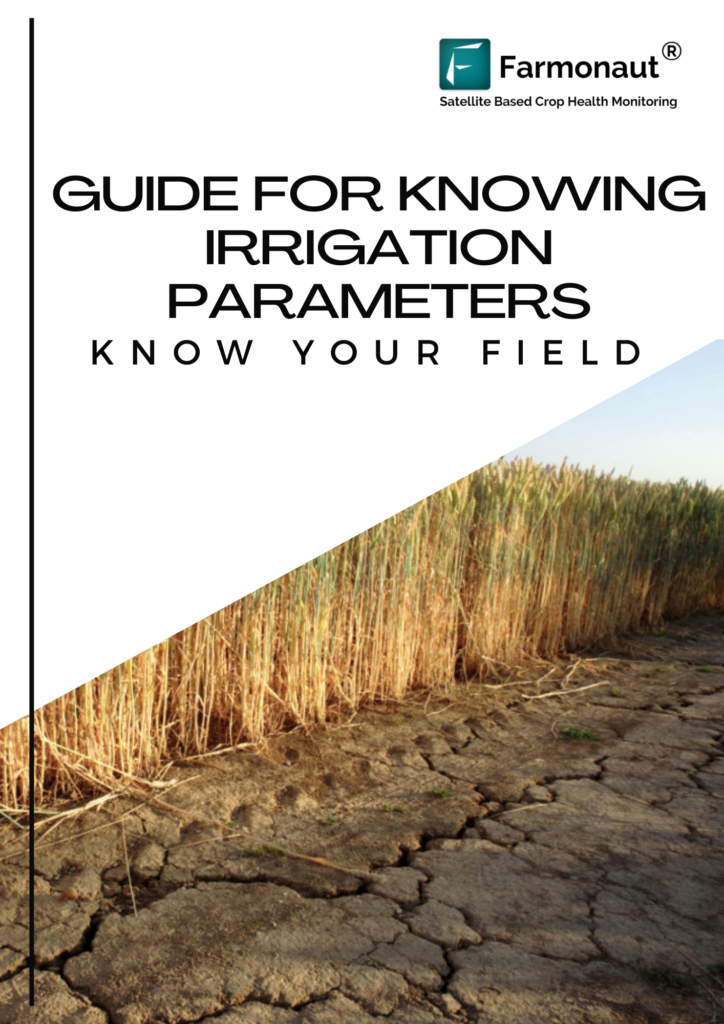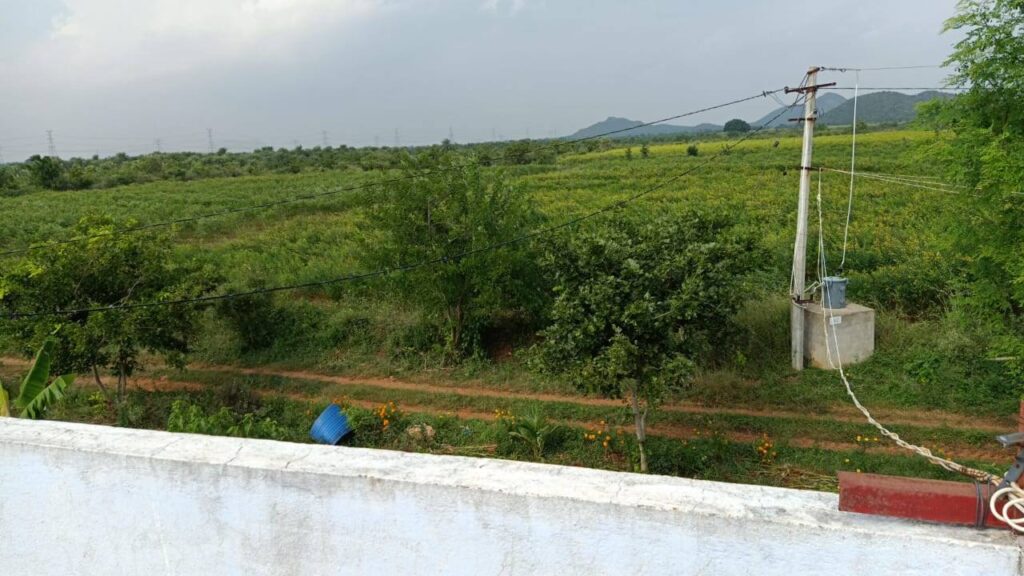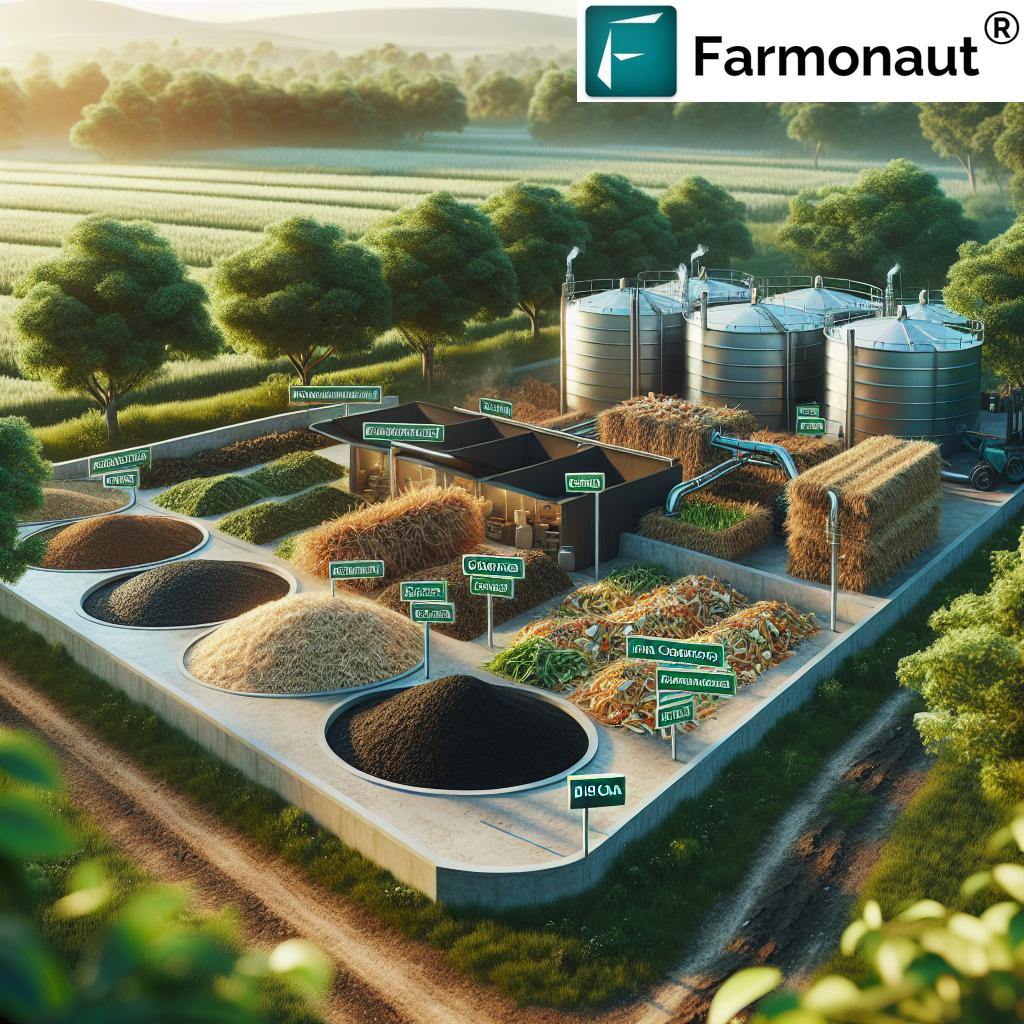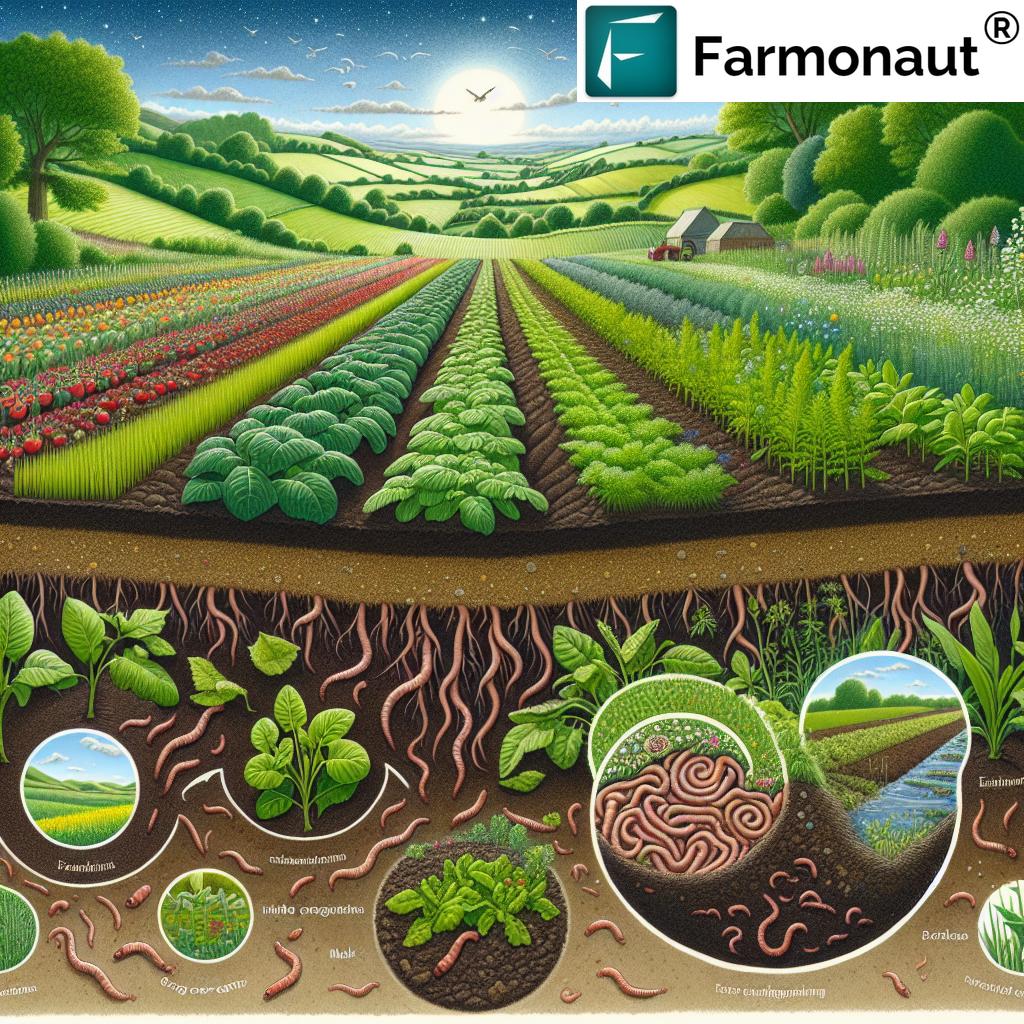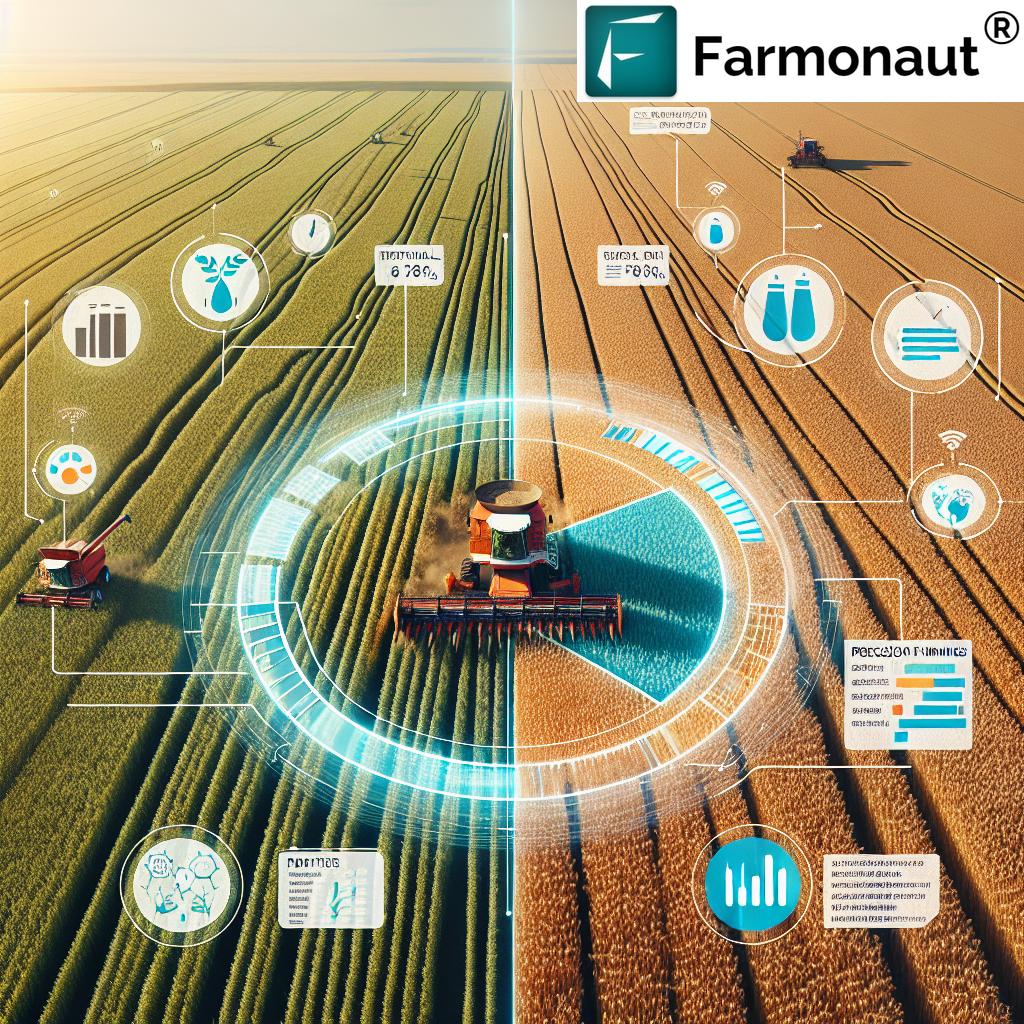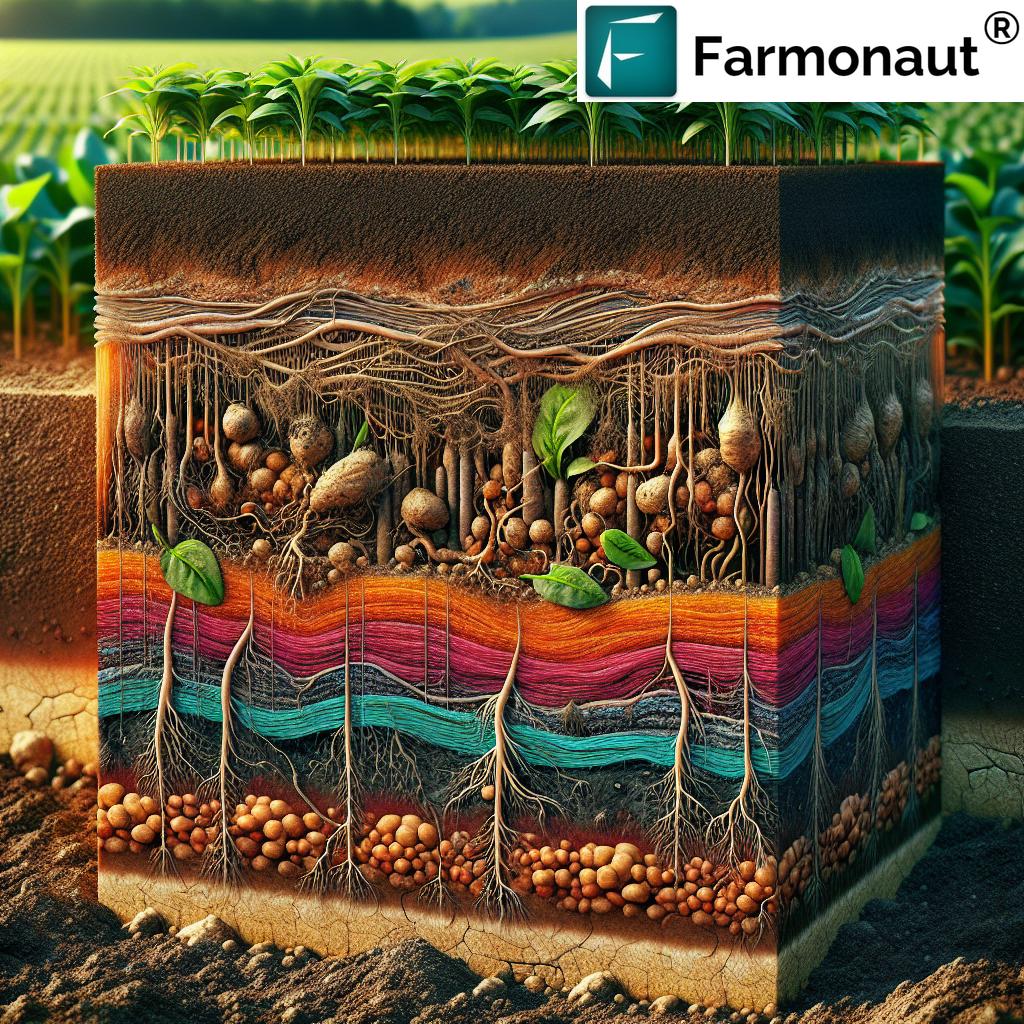Advancing Agricultural Science: Farmonaut’s Guide to Excellence in Crop Research and Peer Review
“The Plant Genome Editor’s Citations for Excellence Awards recognize top contributors in agronomy and soil science journals annually.”
In the ever-evolving landscape of agricultural science, excellence in research and peer review plays a pivotal role in shaping the future of crop science. As we at Farmonaut continue to push the boundaries of agricultural technology, we recognize the immense value of rigorous scientific inquiry and expert evaluation. This comprehensive guide delves into the prestigious “Plant Genome Editor’s Citations for Excellence Awards” and explores how these recognitions are driving innovation in agtech and sustainable agriculture.
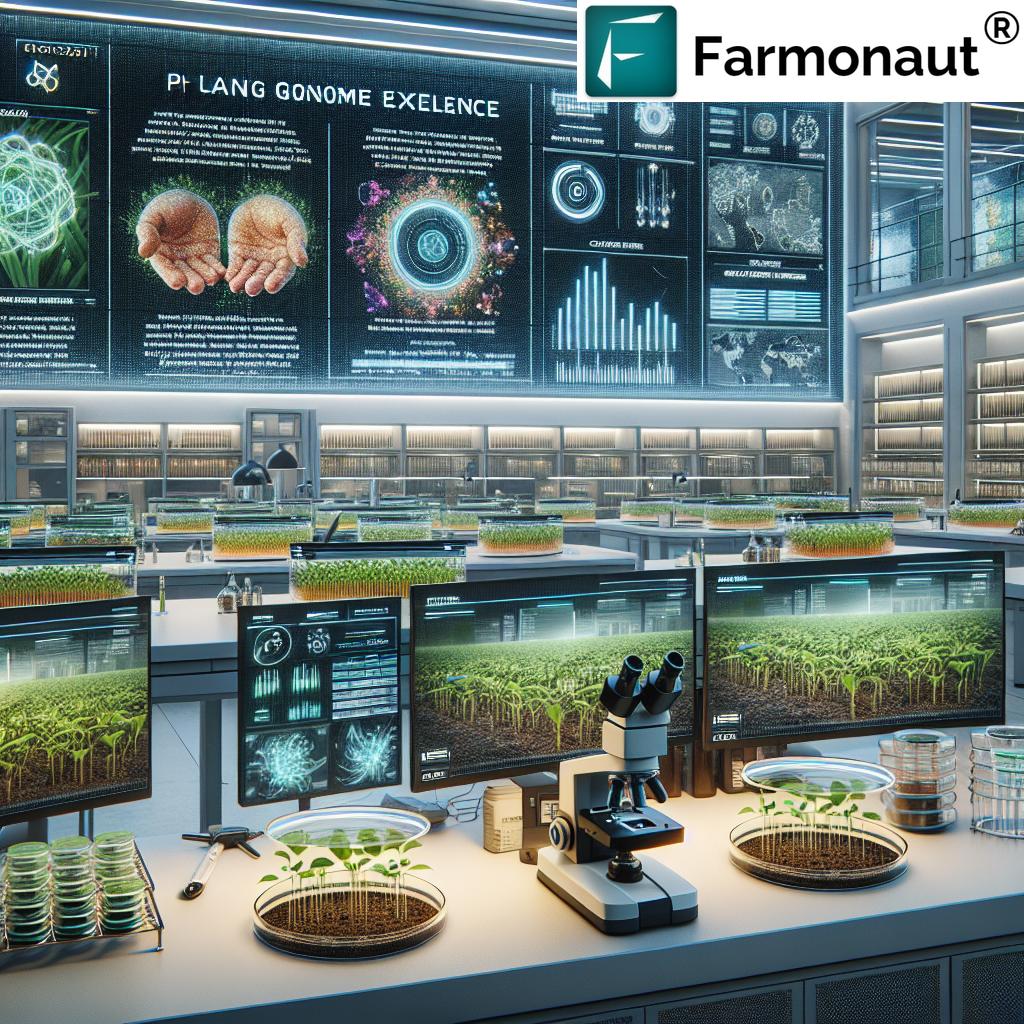
The Significance of Agricultural Peer Review Process
The agricultural peer review process stands as a cornerstone of scientific advancement in crop science. This rigorous evaluation system ensures that published research meets the highest standards of quality and reliability. At Farmonaut, we understand the critical importance of this process in validating new discoveries and methodologies that can revolutionize farming practices.
- Ensures scientific integrity and accuracy
- Facilitates knowledge sharing within the scientific community
- Drives innovation in agricultural practices and technologies
- Supports evidence-based decision-making in farming
The peer review process in agricultural science involves multiple stages, from initial submission to final publication. Experts in the field meticulously evaluate research papers, providing constructive feedback and ensuring that only high-quality, reliable studies make it to publication.
Plant Genome Research Excellence: Pushing Boundaries
Plant genome research excellence is at the forefront of agricultural science, paving the way for groundbreaking discoveries in crop improvement. This field encompasses a wide range of studies, from gene sequencing to genetic modification, all aimed at enhancing crop yields, resilience, and nutritional value.
Key areas of plant genome research include:
- Crop yield optimization
- Disease resistance development
- Drought tolerance enhancement
- Nutritional content improvement
At Farmonaut, we leverage insights from plant genome research to enhance our satellite-based crop health monitoring systems, ensuring that farmers benefit from the latest scientific advancements.
Crop Science Journal Recognition: Celebrating Excellence
Crop science journals play a crucial role in disseminating cutting-edge research and fostering collaboration within the agricultural scientific community. The recognition of outstanding contributions through awards and citations not only acknowledges individual excellence but also sets benchmarks for quality in the field.
Benefits of crop science journal recognition:
- Encourages high-quality research and publication
- Promotes collaboration among researchers
- Attracts funding for further studies
- Inspires young scientists to pursue careers in agricultural science
As advocates for scientific advancement in agriculture, we at Farmonaut closely follow these recognitions to stay abreast of the latest developments in crop science.
Sustainable Agriculture Research: A Path to the Future
Sustainable agriculture research is critical for ensuring food security while minimizing environmental impact. This field of study focuses on developing farming practices that are economically viable, environmentally friendly, and socially responsible.
Key aspects of sustainable agriculture research:
- Soil conservation techniques
- Water management strategies
- Integrated pest management
- Crop rotation and diversification
Farmonaut’s satellite-based farm management solutions contribute to sustainable agriculture by providing farmers with real-time data on crop health and resource management. Our API and API Developer Docs enable researchers and developers to integrate our data into their sustainable agriculture projects.
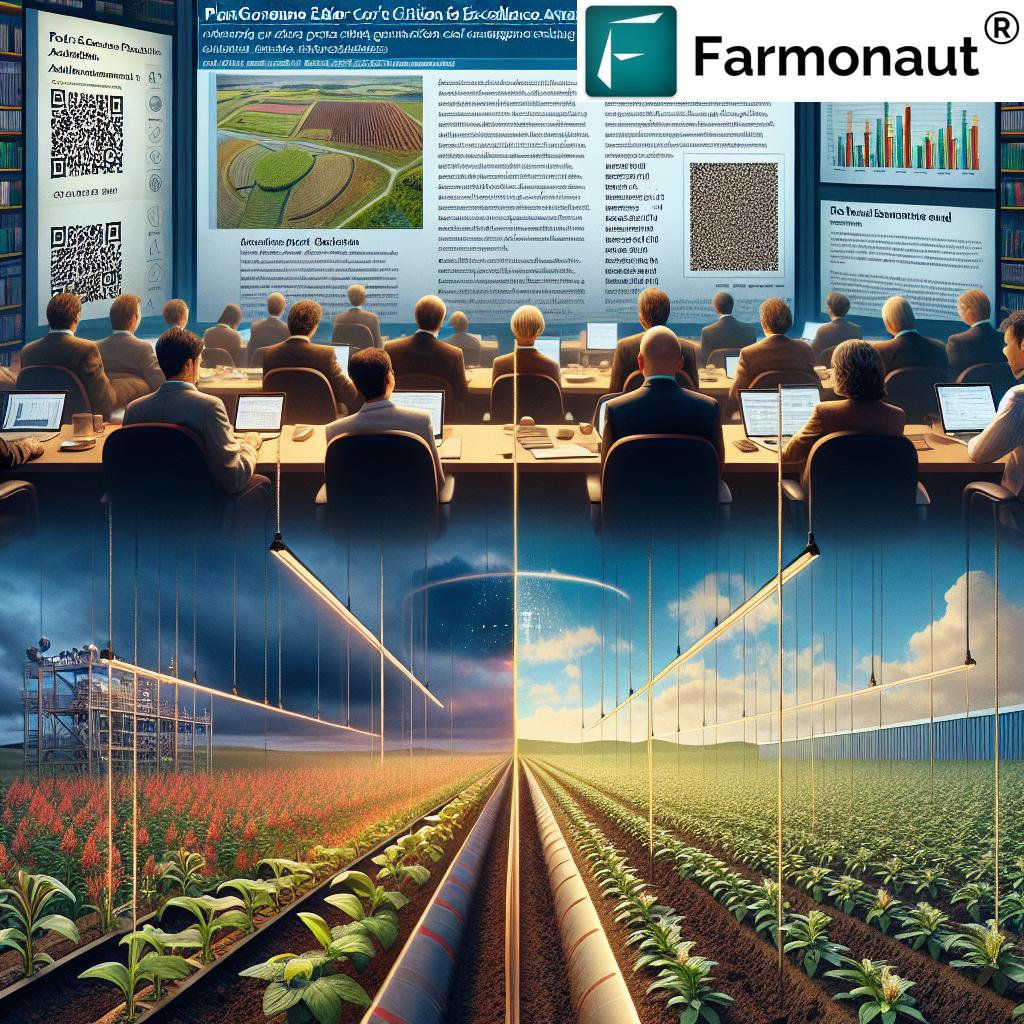
Agronomy Manuscript Editing: Polishing Research for Publication
Agronomy manuscript editing is a crucial step in the publication process, ensuring that research papers are clear, concise, and scientifically sound. Professional editors work closely with authors to refine their manuscripts, improving readability and enhancing the overall quality of the publication.
Key elements of agronomy manuscript editing:
- Language and grammar refinement
- Structure and flow improvement
- Adherence to journal-specific guidelines
- Citation and reference accuracy checks
At Farmonaut, we recognize the importance of clear communication in scientific research. Our commitment to precision extends from our agricultural technology solutions to our support for high-quality scientific publications.
Soil Science Editorial Awards: Recognizing Excellence in a Critical Field
Soil science is fundamental to agricultural success, and editorial awards in this field celebrate outstanding contributions to our understanding of soil health and management. These awards recognize editors and reviewers who consistently uphold high standards in soil science publications.
Impact of soil science editorial awards:
- Elevates the quality of soil science research
- Encourages thorough and constructive peer review
- Promotes innovative approaches to soil management
- Facilitates knowledge transfer between researchers and practitioners
Farmonaut’s satellite-based soil moisture monitoring aligns with the latest advancements in soil science, helping farmers make informed decisions about irrigation and nutrient management.
“Rigorous peer review in agricultural science involves professional manuscript editing and timely evaluations, typically within 2-4 weeks.”
Agricultural Science Collaboration: Fostering Innovation
Collaboration is the lifeblood of agricultural science, bringing together diverse expertise to tackle complex challenges. From interdisciplinary research projects to international partnerships, collaboration drives innovation and accelerates progress in crop science.
Benefits of agricultural science collaboration:
- Pooling of resources and expertise
- Faster problem-solving and innovation
- Broader applicability of research findings
- Enhanced credibility and impact of research
At Farmonaut, we embrace collaboration by providing tools that facilitate data sharing and analysis among researchers, farmers, and agribusinesses. Our platform serves as a bridge between scientific research and practical application in the field.
Crop Research Peer Review: Ensuring Quality and Reliability
The crop research peer review process is a critical quality control measure in agricultural science. It involves the evaluation of research papers by experts in the field, ensuring that published studies meet high standards of scientific rigor and relevance.
Key aspects of crop research peer review:
- Methodology assessment
- Data analysis verification
- Results interpretation evaluation
- Significance and novelty determination
Farmonaut’s commitment to scientific excellence aligns with the principles of rigorous peer review. Our satellite-based crop monitoring technology is continuously refined based on the latest peer-reviewed research in agronomy and remote sensing.
Plant Genetics Publications: Shaping the Future of Agriculture
Plant genetics publications are at the forefront of agricultural innovation, providing insights into the genetic basis of crop traits and paving the way for targeted breeding programs. These publications cover a wide range of topics, from basic research to applied genetics in crop improvement.
Key areas in plant genetics publications:
- Genome sequencing and annotation
- Gene function analysis
- Marker-assisted breeding
- Genetic modification techniques
Farmonaut integrates insights from plant genetics publications into our AI-driven advisory systems, helping farmers make informed decisions about crop selection and management based on genetic potential.
Agtech Scientific Advancement: Bridging Research and Practice
Agtech scientific advancement represents the intersection of cutting-edge research and practical farming solutions. It encompasses a wide range of technologies, from precision agriculture tools to AI-powered decision support systems.
Key areas of agtech scientific advancement:
- Remote sensing and satellite imaging
- IoT sensors for farm monitoring
- AI and machine learning in crop management
- Blockchain for supply chain transparency
Farmonaut is at the forefront of agtech scientific advancement, offering innovative solutions that bridge the gap between research and practical application. Our platform combines satellite technology, AI, and blockchain to provide comprehensive farm management tools.
Plant Genome Editor’s Citations for Excellence Awards: Criteria and Impact
| Award Category | Evaluation Criteria | Recognition | Impact on Agricultural Science |
|---|---|---|---|
| Outstanding Associate Editor |
– Editorial efficiency – Quality of feedback – Contribution to journal’s impact |
– Certificate of excellence – Mention in journal’s annual report |
Ensures high-quality publications that advance crop research and innovation |
| Top Reviewer |
– Timeliness of reviews – Depth and constructiveness of feedback – Number of reviews completed |
– Award plaque – Highlighted profile on journal website |
Enhances the peer review process, leading to more robust and reliable research publications |
| Best Manuscript Editor |
– Language and style improvement – Adherence to scientific writing standards – Attention to detail in formatting and references |
– Editorial excellence award – Opportunity to lead workshops on scientific writing |
Improves the clarity and accessibility of complex scientific findings, facilitating knowledge transfer |
Farmonaut’s Contribution to Agricultural Science Excellence
At Farmonaut, we are committed to advancing agricultural science through our innovative satellite-based farm management solutions. Our platform integrates the latest research findings in crop science, soil health, and precision agriculture to provide farmers with actionable insights.
Key features of Farmonaut’s technology:
- Real-time crop health monitoring using multispectral satellite imagery
- AI-powered advisory system for personalized farm management
- Blockchain-based traceability for supply chain transparency
- Carbon footprint tracking for sustainable agriculture
We invite you to explore our solutions and contribute to the advancement of agricultural science:
Farmonaut Subscriptions
Frequently Asked Questions
Q: How does Farmonaut contribute to agricultural science advancement?
A: Farmonaut contributes by integrating cutting-edge satellite technology, AI, and blockchain into practical farm management solutions. Our platform enables farmers to apply the latest scientific findings in their daily operations, bridging the gap between research and practice.
Q: Can researchers use Farmonaut’s data for their studies?
A: Yes, researchers can access Farmonaut’s satellite and weather data through our API. This allows for the integration of real-world agricultural data into scientific studies, potentially accelerating research in crop science and sustainable agriculture.
Q: How does Farmonaut support sustainable agriculture?
A: Farmonaut supports sustainable agriculture by providing tools for efficient resource management, including water usage optimization and carbon footprint tracking. Our AI-powered advisory system helps farmers make environmentally conscious decisions based on real-time data.
Q: Is Farmonaut involved in plant genome research?
A: While Farmonaut doesn’t conduct plant genome research directly, our platform incorporates insights from the latest genetic studies to enhance crop monitoring and management recommendations. We stay updated on plant genetics publications to ensure our technology reflects current scientific understanding.
Q: How can agricultural scientists collaborate with Farmonaut?
A: Agricultural scientists can collaborate with Farmonaut by utilizing our API for research purposes, participating in our data-sharing initiatives, or providing expert insights to enhance our AI advisory systems. We welcome partnerships that advance both scientific knowledge and practical agricultural solutions.
Conclusion
The advancement of agricultural science through excellence in crop research and peer review is crucial for addressing global food security challenges and promoting sustainable farming practices. At Farmonaut, we are proud to contribute to this endeavor by providing innovative, science-based solutions that empower farmers and researchers alike.
As we continue to push the boundaries of agricultural technology, we remain committed to supporting the scientific community and fostering collaboration. Together, we can create a more sustainable and productive future for agriculture.
Join us in this exciting journey of agricultural innovation. Explore our platform, leverage our data, and let’s work together to shape the future of farming.






